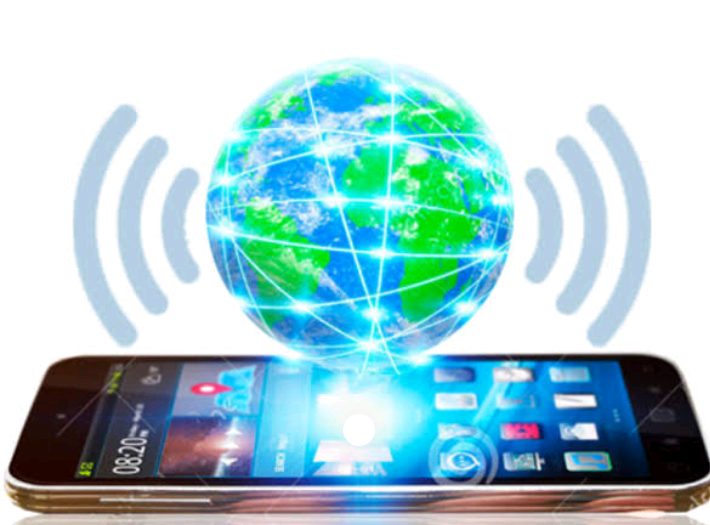The global internetwork of computers and digital devices – otherwise known as the internet, has come to stay with a powerful impact. Also the role of the internet in Nigeria’s economic growth as a catalyst for speedy, efficient business and everyday operations is very clear.
So many public and private organizations now operate with increased efficiency and higher productivity across the world, as a result of the internet. And that is not forgetting how internet communications at the speed of light have cheaply connected people across the world.
Even more, uncountable business ventures are now so largely established on the internet. Which means that without this critical infrastructure, such businesses would fail, or be non-existent. Clear examples include cryptocurrency platforms, digital banking, online schools, remote and hybrid jobs, e-commerce, affiliate marketing, and digital marketing.
The Internet and Its Impact on The Economy of Nations: A Report
A research paper published on the Brookings Institution website in December 2001 titled ‘The Economy and the Internet: What Lies Ahead?’ states clearly the projected impact of the internet on the economic growth of the USA thus:
‘The Internet has the potential to increase productivity growth (of the USA) in a variety of distinct, but mutually reinforcing ways, including:
– Significantly reducing the cost of many transactions necessary to produce and distribute goods and services;
– Increasing management efficiency, especially by enabling firms to manage their supply chains more effectively and communicate more easily both within the firm and with customers and partners;
– Increasing competition, making prices more transparent, and broadening markets for buyers and sellers;
– Increasing the effectiveness of marketing and pricing;
– Increasing consumer choice, convenience and satisfaction in a variety of ways.’
Furthermore, the World Bank and IFC published a report in 2009 titled ‘IC4D, Information and Communications for Development 2009: Extending Reach and Increasing Impact’. The report stated that:
‘for every 10 percentage-point increase in high-speed Internet connections, there is an increase in economic growth of 1.3 percentage points‘.
The IC4D report went further to examine the impact of broadband and mobile communications on the economic growth of developing countries. The report presented curated data on ICT performance, collected from 150 countries.
A quick glance-through of the points above shows a similar impact of the internet on Nigeria, as well as other nations. There is no doubt that personal and business productivity and efficiency have received a phenomenal boost worldwide through the internet. For the upteenth time, we cannot emphasize it more.
Next we acknowledge the following fact. Truth be told, right from when internet connectivity was brought to Nigeria in the 1990s, nothing has remained the same. Speed of operations is no longer a passing phrase – it is now a craving, a necessity. Nigeria is now forced to deal with quick inputs, outputs, and real-time processes as with the rest of the world everyday.
The rickety, snail pace of banking, education, healthcare, governance, industry, broadcasting, communications and virtually every sector of Nigeria’s economy underwent a necessary revolution. Any business venture or organization that does not value the marriage of speed and efficiency is in danger of huge losses. It is soon deserted by customers and stakeholders, who will go elsewhere for better services. And the competition is heating up everyday.
Role of the Internet in Nigeria’s Economic Growth: 2023 Statistics
The Datareportal site reports that as of January 2023, there are about 122.5 million internet subscribers in Nigeria. Additionally, the internet penetration rate in Nigeria is presently standing at 55.4 percent of the total population, within the same period.
That’s not all. Internet speed metrics measured by Ookla site indicate that at the start of 2023, internet speeds in Nigeria approximated to:
– A median mobile internet connection speed for cellular networks being 19.84 Mbps;
– A median internet connection speed for fixed internet being 11.84 Mbps.
In fact, during the Covid-19 lockdown of 2020, internet usage surged in huge proportions. Many meetings, classes, and events moved unavoidably to cyberspace during that period. And the demand for faster and more powerful internet connections increased – which of course exposed weak connections and infrastructure.
Over time, the need for reliable and fast internet connections became a strong factor in choosing internet service providers across the country. It has spurred more internet and telecom service providers to emerge. And the competition to acquire and retain subscribers intensified.
To alleviate the frustration encountered due to lagging internet speeds, many Nigerian subscribers opt to use more than one internet service provider. Particularly the mobile telecom operators. It is now commonplace for Nigerian internet users to have more than one mobile SIM card in their smartphones. That way, any user could subscribe to internet data from any of the telecom mobile operators whose SIMs are in their possession.
Role of the Internet in Nigeria’s Economic Growth: Impact on Governance
In about two decades, another major role of the internet in Nigeria’s economic growth was to expose the flaws of governance to the whole world. In the same vein, maladministration and communication lags in the home, small office and larger organizations were also greatly exposed.
The situation quickly beckoned for reforms in human relations, business administration, and leadership styles in every institution that mattered. Indeed such reforms were necessary, to boost the morale of workers and the citizenry who underperformed due to bad leadership and relationships.
Furthermore, business and social secrets swiftly become open secrets through the internet, igniting widespread criticism. In some cases, exposed unpalatable secrets affecting the general public, and lingering maladministration, come with intense revolts from the Nigerian citizenry.
It is the same pattern across the world – as more people now demand for a government and society that works for them. Internet exposure has made people frenziedly demand for higher standards, fairer treatment and accountability in the society, office and polity. The people are no longer ‘sheeple’ anymore – information is power.
The need to establish democratic and ethical values right from the grassroots is now vehemently demanded by Nigerian citizens. This is a follow-up from the widespread exposure of maladministration and dirty secrets in government and influential organizations in Nigeria. And the internet is by far a powerful channel for voicing that demand as well.
A typical case in recent history was the #EndSARS protests of 2020 which started on Nigeria’s social media. Nigerian citizens moved as one to sharply reject police brutality, sparking further protests. Before long, issues of poor governance and callousness by the Nigerian government were sharply highlighted by people across the internet. The debate led all the way up to the 2023 general elections.
CONCLUSION
The internet is now a critical resource for the socioeconomic empowerment of Nigerian citizens. The role of the internet in Nigeria’s economic growth is clear in empowering individuals to succeed better in business and personal life. People can now conduct their affairs with more precision and efficiency; communicate and network faster and cheaper around the world.
Every sector of the Nigerian economy has been mightily enhanced by resources and communication tools provided by the internet. Education, healthcare, governance, manufacturing, agriculture, commerce, real estate, energy – mention it. It has further encouraged better social responsibility, participation and inclusion in nation building from the citizens. And it will definitely continue this way.








